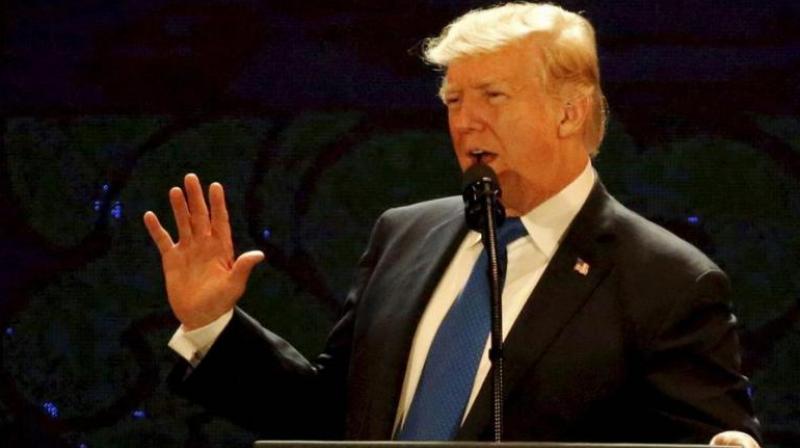Pentagon to play bigger role to drive arms sales

Washington: The Trump administration is nearing completion of a new “Buy American” plan that calls for U.S. military attaches and diplomats to help drum up billions of dollars more in business overseas for the American weapons industry, going beyond the assistance they currently provide, U.S. officials said.
President Donald Trump as early as February is expected to announce a “whole of government” effort to ease export rules on purchases by foreign countries of U.S.-made military equipment, from fighter jets and drones to warships and artillery, according to people familiar with the plan.
Trump is seeking to fulfill a 2016 election campaign promise to create jobs in the United States by selling more goods and services abroad to bring down the U.S. trade deficit from a six-year high of $50 billion.
The administration is also under pressure from U.S. defense contractors facing growing competition from foreign rivals such as China and Russia. But any loosening of the restrictions on weapons sales would be in defiance of human rights and arms control advocates who said there was too great a risk of fueling violence in regions such as the Middle-East and South Asia or arms being diverted to be used in terrorist attacks.
Besides greater use of a network of military and commercial attaches already stationed at U.S. embassies in foreign capitals, senior officials who spoke on condition of anonymity said another thrust of the plan will be to set in motion a realignment of the International Trafficking in Arms Regulations (ITAR).
It is a central policy governing arms exports since 1976 and has not been fully revamped in more than three decades.
This expanded government effort on behalf of American arms makers, together with looser restrictions on weapons exports and more favorable treatment of sales to non-NATO allies and partners, could bring additional billions of dollars in deals and more jobs, a senior U.S. official said, without providing specifics.
The strategy of having the Pentagon and the U.S. State Department take a more active role in securing foreign arms deals could especially benefit major defense contractors such as Lockheed Martin and Boeing Co.

